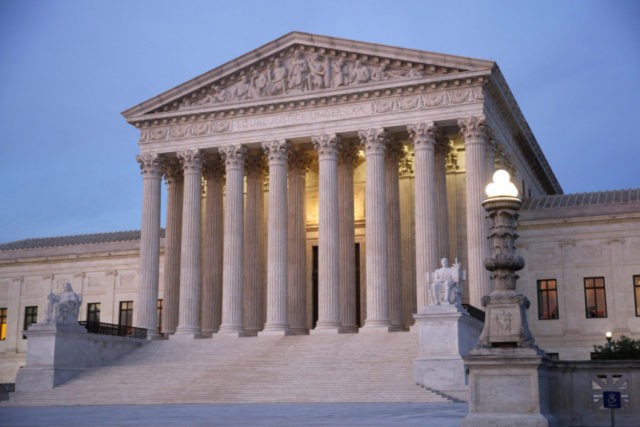The case surrounding three low-income mothers who sued after the State of Montana ended a scholarship program because parents were choosing to use the funds for tuition at religious schools led Supreme Court justices hearing oral arguments in Espinoza v. Montana Department of Revenue to focus on discrimination based on one’s faith.
At issue in the case is 2015 legislation enacted by Montana lawmakers to give taxpayers a dollar-for-dollar tax credit for contributions up to $150 to a student scholarship organization.
Although the contributions were made to a scholarship fund and not to a specific school, the state was faced with questions about whether money used for tuition to religious schools violated the state’s prohibition on using public funds for any church-affiliated organization.
The Montana Department of Revenue, which implemented the scholarship program, decided to adopt an administrative rule to exclude religious schools as a “qualified education provider.”
When the suit reached the Montana Supreme Court, it ruled, in part, that including religious schools was not “severable” from the rest of the scholarship program and invalidated it entirely, with the exception of some final scholarship awards in the summer of 2019.
The attorneys arguing for the plaintiffs, including the U.S. government, and on behalf of the state of Montana, faced tough questions from almost all of the justices, including this exchange between Adam G. Unikowsky, attorney for Montana, and Justice Stephen Breyer:
“The state says: We will pay for the salaries of priests if they’re Mohammedan but not if they’re Buddhist. Unconstitutional, right?” Breyer asked.
“Yeah,” Unikowsky answered.
“Okay. So why doesn’t it also violate the Constitution were the state to say we won’t pay the salaries of any priests but we will pay the head of every other organization? Breyer said.
“So I think that there’s a constitutional difference between distinguishing among religions and saying the Court is — the government is just going to stay out of religion altogether,” Unikowsky said.
“Suppose the state said we’re going to allow the scholarship funds to be used for secular schools or protestant schools but not for Jewish schools or Catholic schools. Unconstitutional?” Justice Brett Kavanaugh asked.
After Unikowsky answered in the affirmative, Kavanaugh continued:
“So what’s different when you say the scholarship funds can be used for secular schools but not for Protestant, Jewish, Catholic or other religious schools because of the religious status?” Kavanaugh asked.
“No, isn’t the crucial question why the state court did what it did?” Justice Samuel Alito asked Unikowsky. “If it did what it did for an unconstitutionally discriminatory reason, then there’s a problem …”
“So I’ll give you an example,” Alito said. “The state legislature sets up a scholarship fund, and after a while, people look at the recipients of the scholarships, and some people say: Wow, these are mostly going to blacks and we don’t like that and that’s contrary to statelaw. So the state supreme court says: Okay, that discrimination is — we’re going to strike down the whole thing.”
“Is that constitutional?” Alito asked.
“No, so we don’t think the race analogy is apt,” Unikowsky argued. “I don’t think that’sconstitutional, and we just don’t think that race and religion are identical for all constitutional reasons.”
While Justices Ruth Bader Ginsburg and Elena Kagan questioned whether the plaintiffs even had standing in the case because the scholarship program no longer exists, the general sense was that both liberal and conservative judges oppose discrimination based on religious beliefs.
A decision in the case is expected next summer.
This case is Espinoza v. Montana Department of Revenue, No. 18-1195, in the United States Supreme Court.
Follow Penny Starr on Twitter

COMMENTS
Please let us know if you're having issues with commenting.